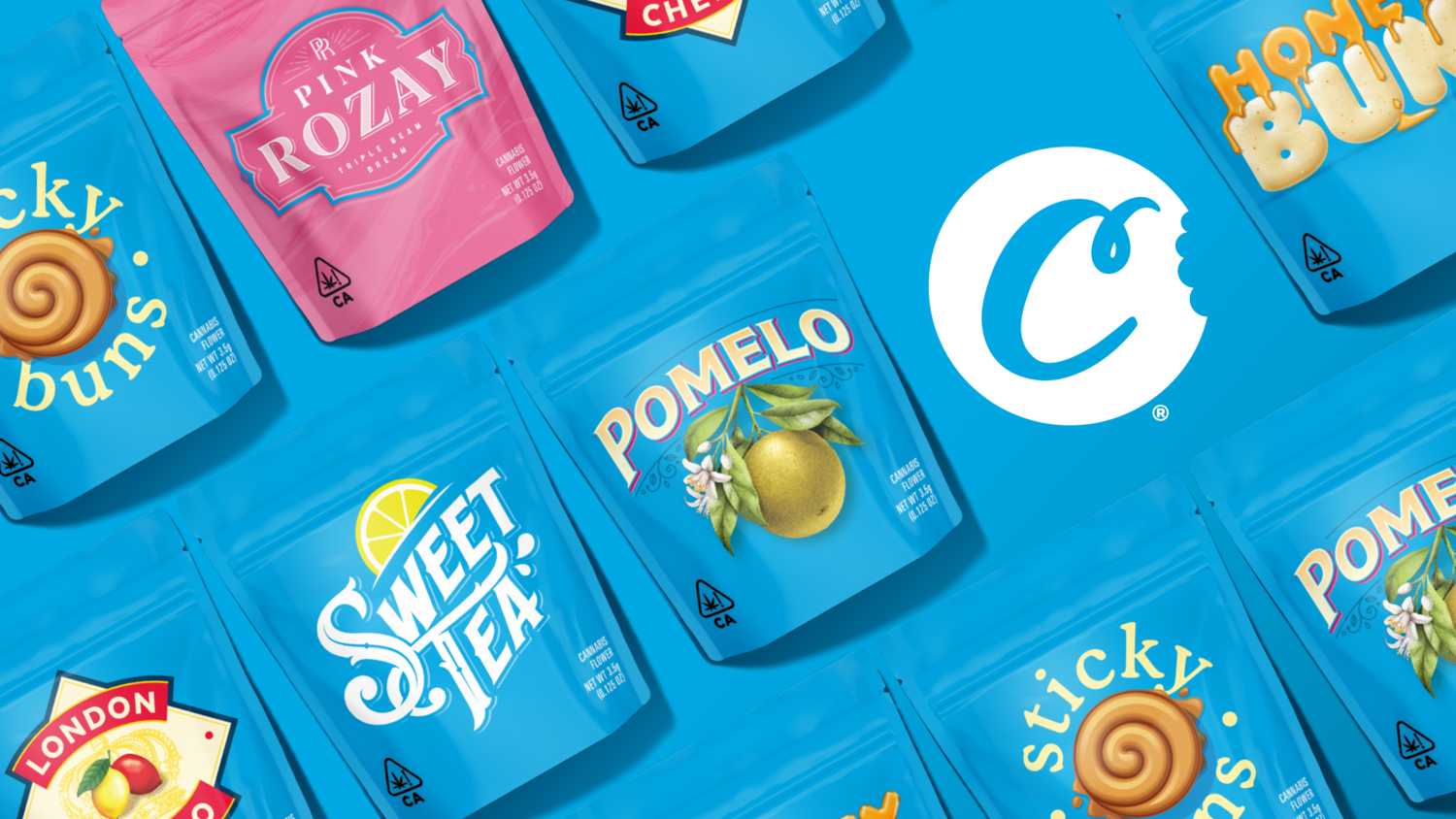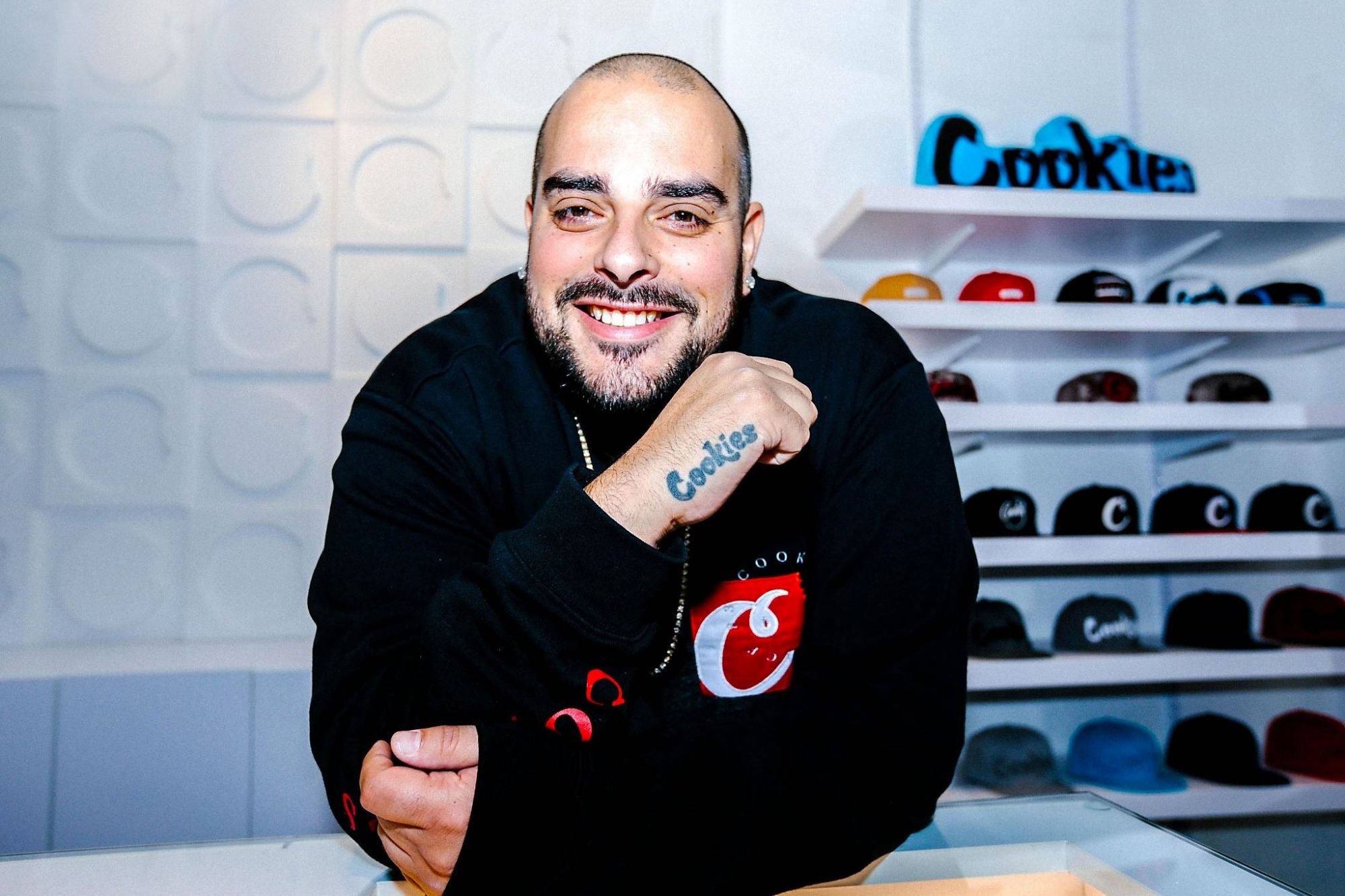
Few brands have as much influence as Cookies.
Since its official launch in 2012, the Bay Area-based flower brand has dominated dispensary shelves. Now with 38 locations spanning seven U.S. states and a growing international footprint, it’s safe to say that Cookies is a household name in the cannabis industry.
Built on authenticity, innovation, and superior genetics, Cookies describes itself as a brand that’s “curated for the connoisseur.”
But how did this empire come to reign?
From humble beginnings in the black market to a global enterprise, the Cookies brand has a history as rich as cannabis itself. Here’s the Cookies cannabis brand explained.
The man who started it all
Gilbert Miliam Jr., better known by his stage name Berner, had a creative itch from a young age. Growing up, he found solace in hip-hop music, and he started to rap in high school. His deep appreciation for music and pop culture would later prove invaluable during the creation of Cookies.
When he was just 13 years old, Berner smoked cannabis for the first time in Arizona. He enjoyed it then, but it wasn’t until he tried a high-quality strain from the Bay Area a few years later that his passion for plant medicine was truly ignited – an experience he claims was “life-changing.”
Medical marijuana was already legal in San Francisco by the time he returned as a teenager. So on the day of his 18th birthday, he was first in line to get his medical card. From there, he began frequenting a local dispensary, though he still had his ties in the underground market.
Berner’s enthusiasm for herb (and the creative process) was so strong that he decided to film a documentary about it. While shooting footage at his local dispensary, they offered him a job, which he gladly accepted.
Berner’s foray into the cannabis industry started as an intake representative. Later, he worked his way to being a budtender – all of which, while simultaneously pursuing his music career and underground cannabis connections. Even when his music career started to gain traction, Berner continued his job at the dispensary because he understood the immense value of networking.
During his time as a budtender, Berner noticed a missing piece. “I remember when vendors used to come in with a duffel bag with 30 pounds in it and have no name to it, or they’d have a name, and it would just be in the turkey bag,” he told MJBizDaily in an interview. “It’d be our job to put that weed in a plastic jar and then create a sign for it on the shelf.”
Berner didn’t mind this, of course. In fact, it was one of his favorite parts of the job. He loved getting creative with the signs and seeing which designs drew people in to buy the product. Berner realized that certain vibes enticed people and others didn’t.
That’s when he saw an opportunity.
A stroke of genius
In the process of falling in love with bud, Berner realized a lack of actual branded flower products.
Outside of his time at the dispensary, Berner had grown particularly fond of a cultivator named Jai, better known as Jigga.
“I was a huge fan, and I wanted to just let him know I wanted it all the time and went above and beyond to show him how excited I was about it,” he told Cannabis & Tech Today.
To show his appreciation, Berner made T-shirts of the first strain Jigga brought him – Cherry Kush. He loved the bud so much that he featured the T-shirts in his first music video. “I wanted to show him like ‘Yo, I want to get this shit out to the world. People deserve to taste the shit you’re creating,’” he said.
This brilliant move would become pivotal in Cookie’s success.
Since cannabis is federally illegal, you can’t process a trademark with the United States Patent and Trademark Office for a cannabis brand. You can, however, trademark a clothing brand that would prevent anyone else from using the name and profiting off the work.
That’s when Cookies SF was formed.
Music ties
While Berner grew his cannabis network, his music career grew with it. Through his fame in weed circles, he met stoner rap icons like Wiz Khalifa, which took his career to new heights. Eventually, Wiz Khalifa signed Berner, and he toured alongside artists like A$AP Rocky.
Berner’s connection to the music industry and understanding of pop culture is a large part in Cookie’s mainstream success. One of the first shots to mainstream was a video he did with Chris Brown, Wiz Khalifa, and Big K.R.I.T. In it, he wore a Cookies sweatshirt.
“I knew that video was going to get millions of views, and I knew it was going to be on TV,” Berner said. “I said to myself, ‘Wel, if I really want to launch COOKIES, this is the best way to do it.’”
Path to the top
Cookies officially launched in 2012. During this time, Berner and Jigga introduced to the world what would later become one of the best-selling strains, Girl Scout Cookies. (Note: The strain is now simply called GSC over cease and desist letters sent by the Girl Scouts of America.)
Backed by some of the most prolific artists, Cookies became an instant success. The company quickly went mainstream and has grown its business through the combination of premium genetics and social media influence. Through this, the brand built a grassroots cult while remaining loyal to its initial promise: authenticity and innovative strains.
Today, Cookies is one of the most well-respected and top-selling cannabis brands. The company and its products are recognized globally and offer a collection of over 150 cannabis varieties and product lines including indoor and sun-grown flower, pre-rolls, gel capsules, vape cartridges, CBD products, and medicinal mushrooms.
And that clever branding strategy Berner used with his t-shirts created a clothing empire that grossed over $50 million last year. As for their brick-and-mortar locations, Forbes reported that they earn between $100,000 and $200,000 a day, with their popular Mel Rose location frequently earning over $450,000 a day.
The future of Cookies
Even after all these years, Berner is still revving up new ideas on how he can make an impact on the cannabis industry. One of his biggest passions is getting people from the illicit market to enter the legal scene. Conscious of how fortunate he’s been, he actively seeks to empower other minority entrepreneurs and make their dreams happen.
One way he plans to do this is by offering a “Cookies University” of sorts. He plans to create a place where someone can go to learn all aspects of the cannabis industry, from breeding and cultivating to business and branding.
Berner also has plans to expand Cookies’ international footprint. The brand already has stores and partnerships in Israel, Spain, Canada, Portugal, and the Netherlands. And that’s just Cookies – never mind the other brands under Berner’s belt like Vibes Papers, Hemp2o, and Lemonnade.
Cookie’s influence has caught the attention of many high-profile investment groups. In fact, Berner turned down a nearly $1 billion deal to acquire his clothing and cannabis businesses. Though he says he still questions whether he made the right choice, he knows his hands-on approach is the best thing for Cookies in the long term. And he means really long-term. Berner says he has enough genetics to plan strain drops for Cookies until 2080.
Nowadays, Berner is returning to his filmmaking roots. According to recent social media posts, he plans on writing TV and film scripts all 2022. Who knows – maybe we can expect Cookies to hit the big screen sometime in the future.
Looking for some Green? Check out our menu for a selection of flower, edibles, concentrates, and more. For all additional questions, please contact us. You can also follow us on Instagram to stay up to date on the latest Green news, products, and events.
